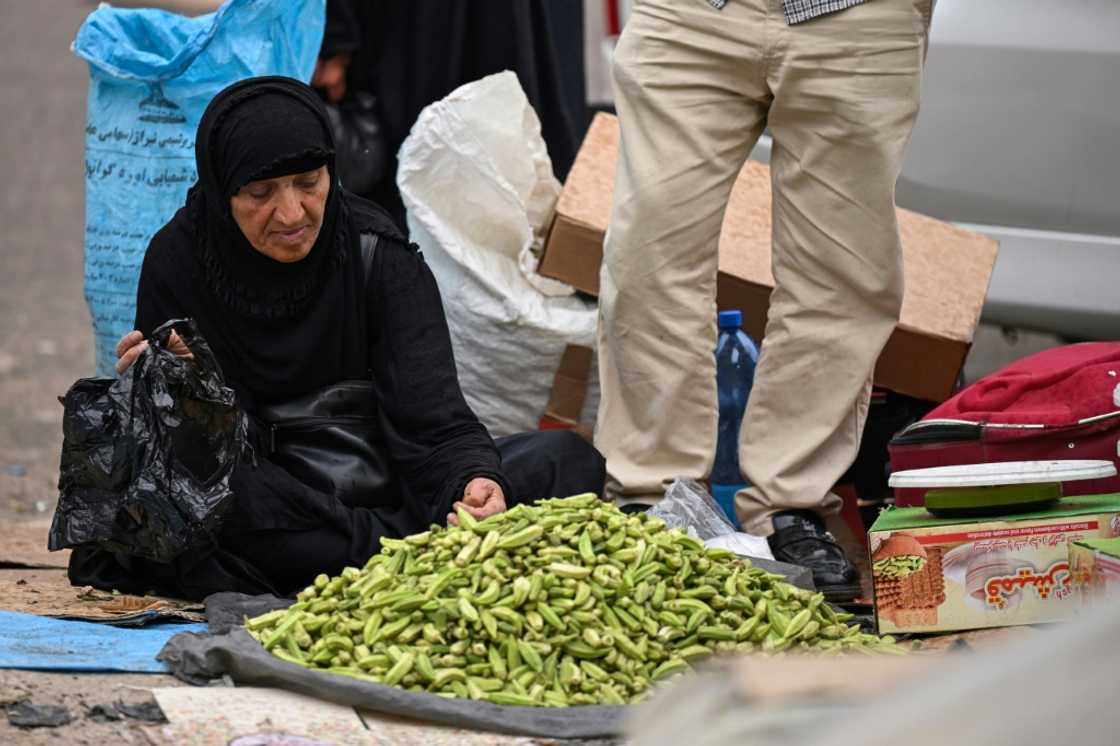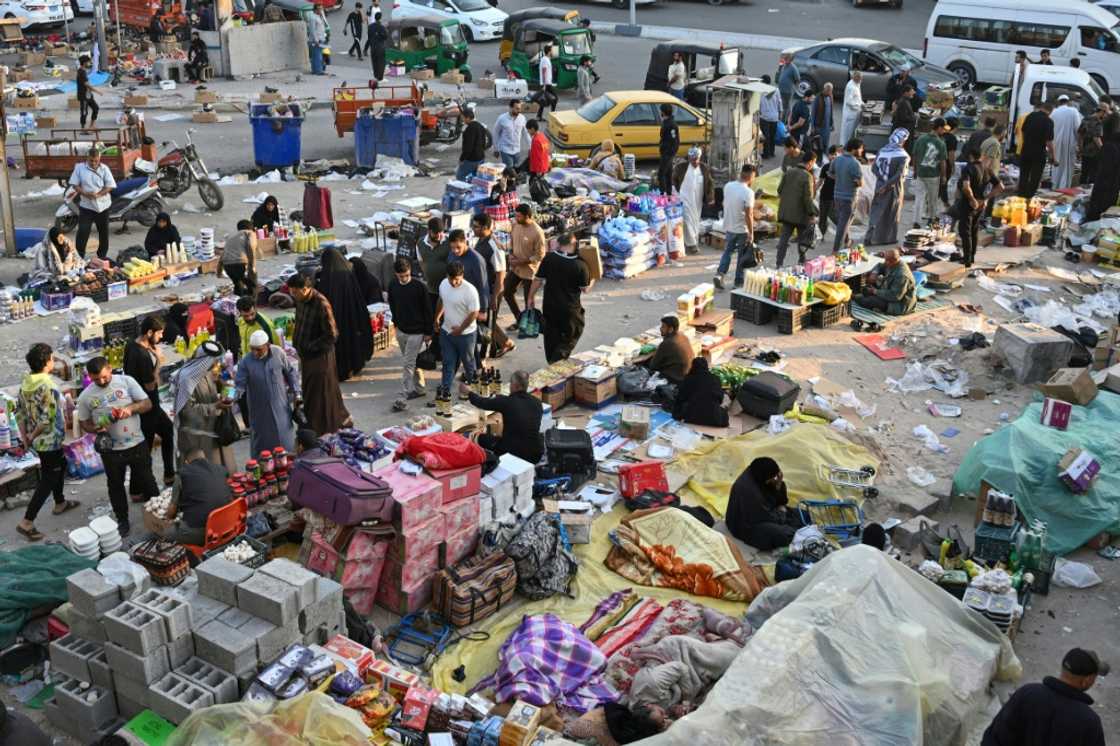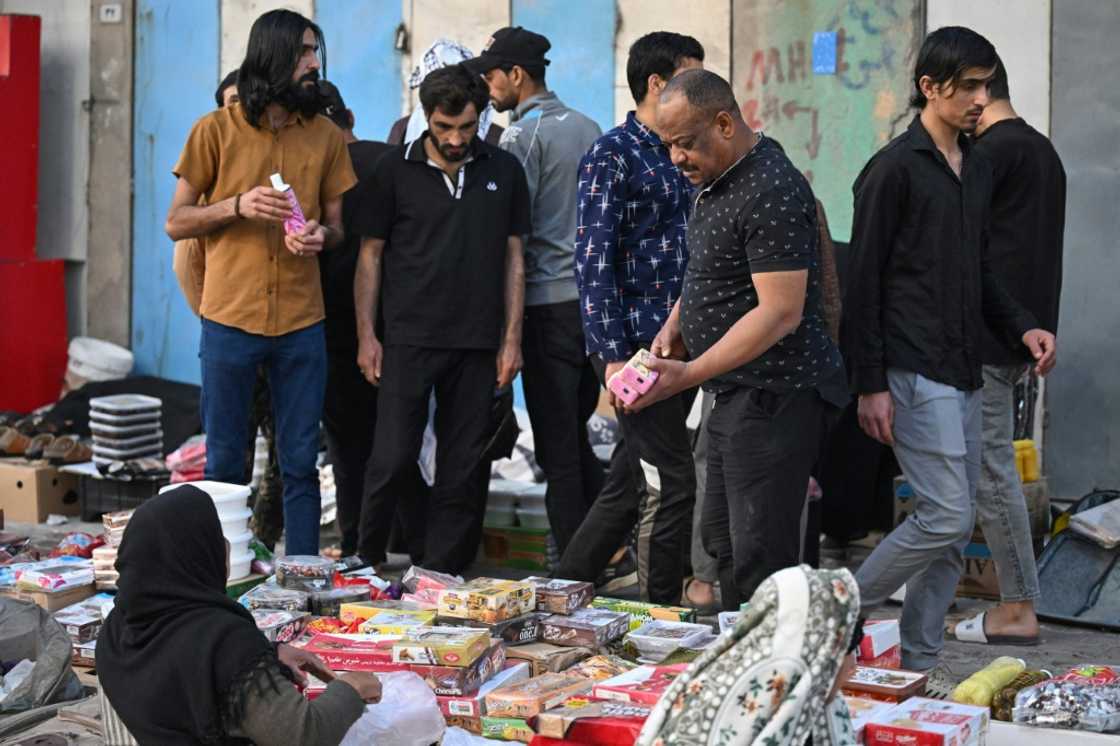
Each Friday, Alawi traverses the boundary from Iran into Iraq to peddle his goods in the markets of Basra, serving as a refuge for Iranians facing harsh economic restrictions.
He is merely one among numerous Iranian vendors who brave the difficult trek into southern Iraq via the Chalamja border crossing.
They offer vital products like chickens, eggs, cooking oil, and everyday necessities for sale at affordable prices, aiming for gains that would seem inconceivable in their homeland because of significant currency devaluation and rising inflation.
"Alawi stated that the circumstances are challenging because of the embargo," which refers to the Western sanctions imposed on Iran.
Fearing potential backlash at home, the 36-year-old requested that his last name be kept private. He mentioned that he hadn’t readily abandoned his nation and had attempted to peddle his goods in a local marketplace.
He informed AFP that without any customers, the products would go bad, forcing us to discard them, resulting in our loss.
For the last seven years, he has been journeying to Iraq each year. There, he sells okra during the summer months and switches to selling dates in the winter season, making anywhere from $30 to $50 per day — which is significantly higher compared to what he would earn back home.
"When we swap Iraqi dinars for Iranian rials, it amounts to quite a bit," explained the father of two.
He mentioned that we could use it up within five days or perhaps even extend it to a week.
'A lifeline'
Following a short interval of eased sanctions as part of an agreement requiring limitations on Iran’s nuclear program, U.S. President Donald Trump reinstated the stringent penalties during his initial presidential term in 2018.
Since then, the Iranian rial’s value has plummeted, exacerbating high inflation and unemployment.
According to official data, prices surged by over 32 percent last month when compared to March of the preceding year.

This week, Trump declared that his government would resume discussions with Iran regarding its nuclear program, scheduled for Saturday in Oman.
The Iranian Foreign Minister, Abbas Araghchi, stated that the primary objective of his nation is to have the US sanctions removed.
Meanwhile, Basra’s marketplaces remain bustling with traders from Iran.
On the Friday market, sacks of rice were piled onto plastic crates alongside bottles of laundry detergent.
As some sellers engaged in conversation with their customers, others were nodding off next to their shopping bags, trying to shake off the exhaustion from a lengthy trip.
Hayder Al-Shakeri from the London-based Chatham House think tank’s Middle East and North Africa program noted that informal cross-border trade has grown substantially during the last ten years, particularly due to the increasing impact of sanctions on daily life in Iran.
The closeness of Basra to Iran's Khuzestan province, where numerous inhabitants speak Arabic and have cultural similarities with Iraq, positions it as a key destination for predominantly working-class Iranian merchants, according to Shakeri.
He mentioned that among those affected are women and older men who have seen their incomes drastically reduced due to rising prices. He emphasized that this cross-border trade serves as an essential lifeline for them.
"Gaining income in steadier currencies such as the Iraqi dinar or even US dollars offers a financial cushion" against the devalued rial, he mentioned additionally.
Better and cheaper
Iran holds significant political sway over Iraq and serves as an important economic ally, being the largest buyer of Iraqi non-oil products after oil.
The trade volume between these two nations totals dozens of billions of dollars.
Milad, who is 17 years old, along with his mother, has been selling everyday items in Basra for the last couple of years. Concerned about the deteriorating conditions at their home, they recently decided to lease a tiny store.
In Iran, "securing employment is difficult, and the local currency is weakening," remarked Milad with curly hair, who chose not to share his surname. He also mentioned that his cousin has been searching for a job ever since graduating.
Iraqi mathematics professor Abu Ahmad, aged 55, makes his way to the market each Friday in search of freshly imported Iranian products.

"He remarked that their geyMAR is superior to ours," he stated, speaking about the honey-infused cream that Iraqis enjoy at breakfast time.
It is also cheaper.
He mentioned that they sell it for 12,000 dinars ($8), which is cheaper than the Iraqi price of 16,000.
Shakeri of Chatham House cautioned that local suppliers "have a grudge against the competition," and although Iraqi security forces occasionally expel Iranians, they understand these individuals will ultimately come back.
A 47-year-old Iranian mother of five named Umm Mansur has faced a difficult situation after joining other vendors six months ago.
At the border, "they offend and abuse us," she stated.
Other vendors have shared comparable stories, mentioning they were detained for hours at the checkpoint.
Umm Mansur mentioned that she is ready to ignore the poor treatment in order to make four times more than her current earnings back home.
She stated that in Iran, earning a livelihood is impossible.

Out Of Topic Show Konversi KodeHide Konversi Kode Show EmoticonHide Emoticon